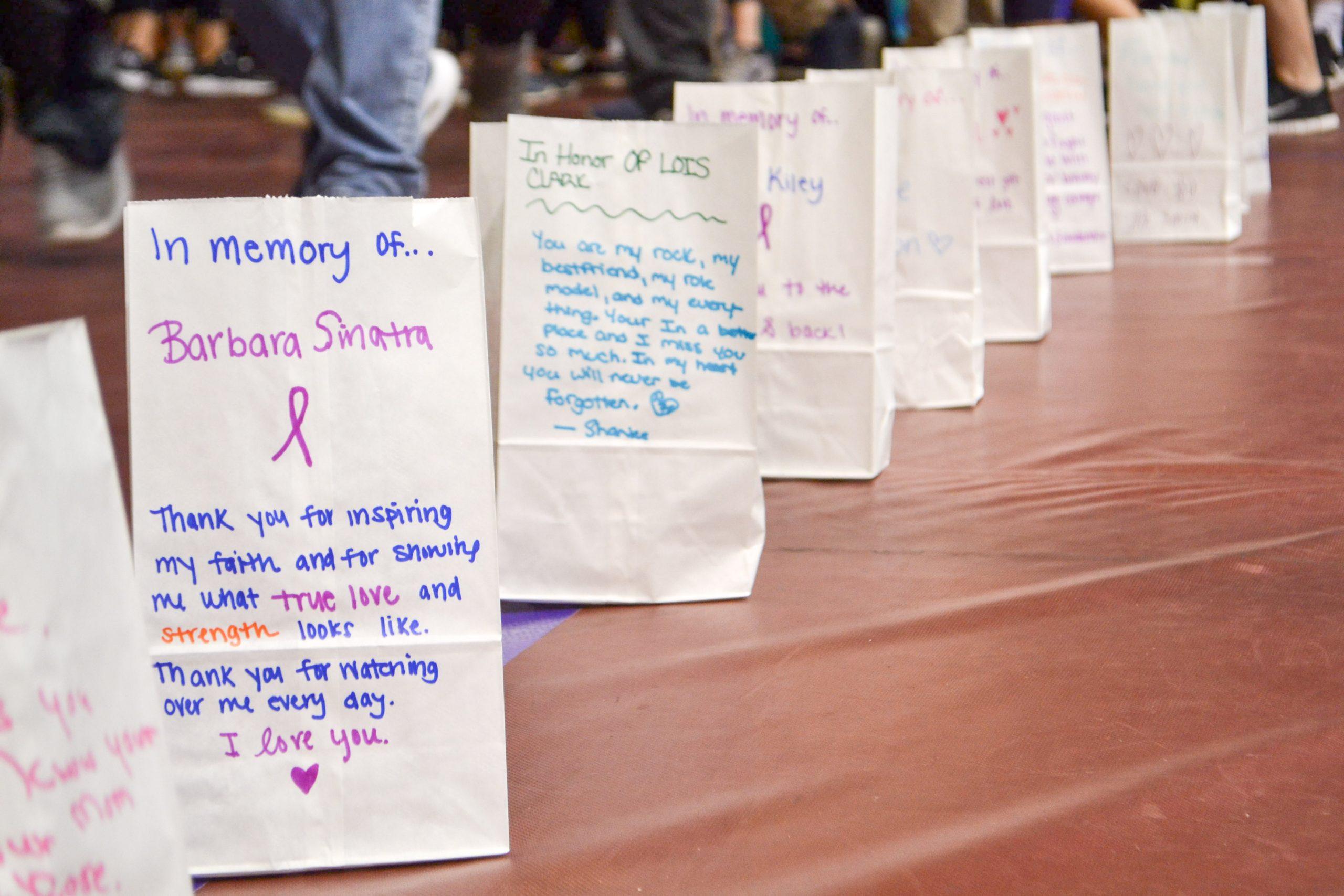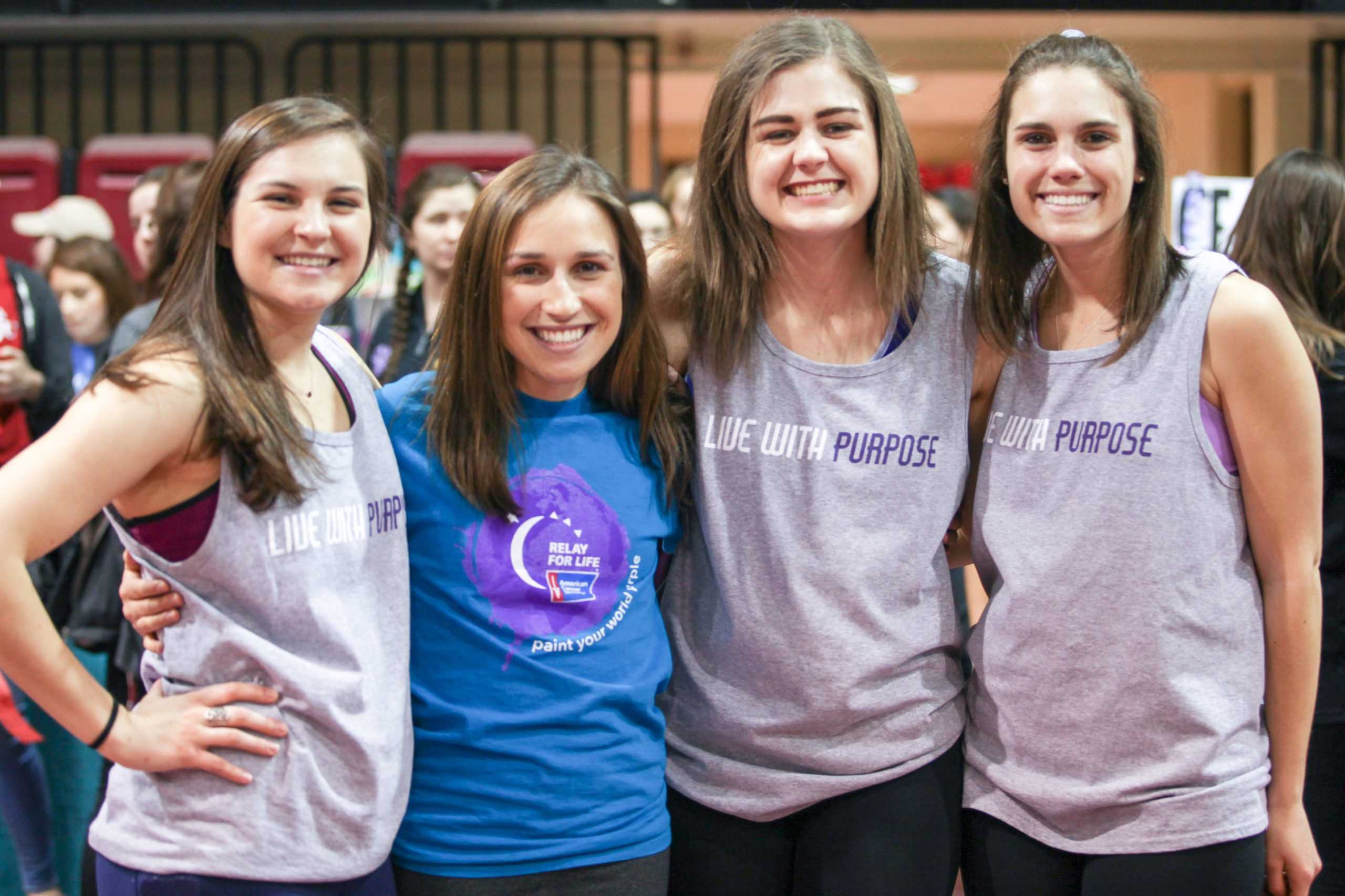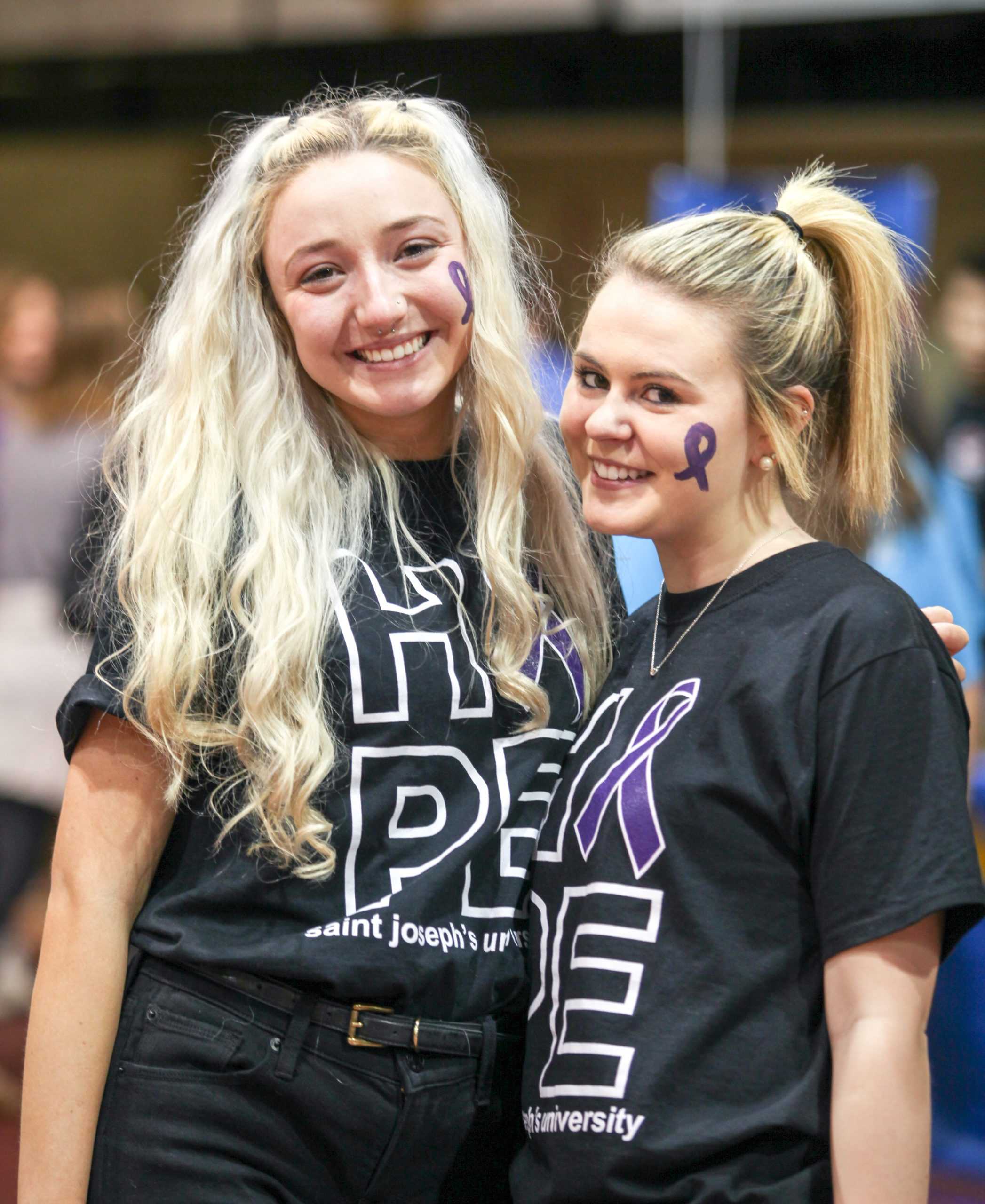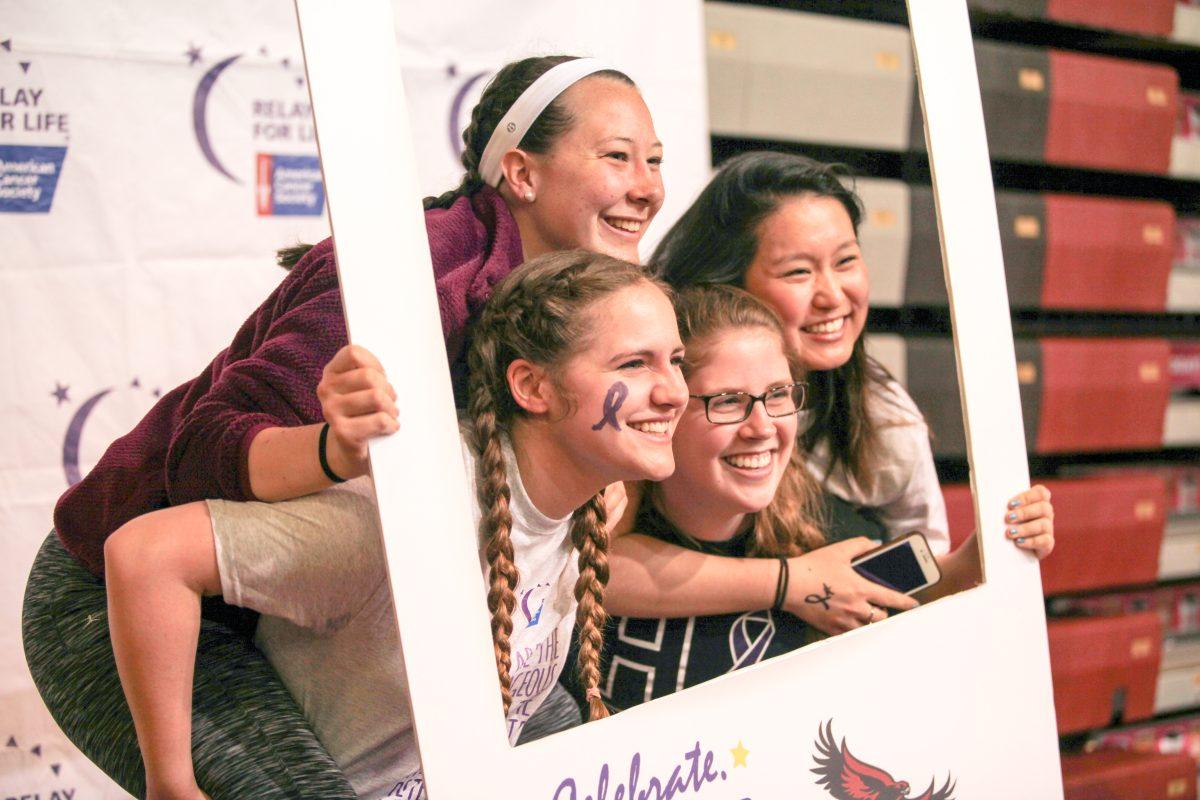Hawk Hill hosts annual Relay for Life fundraiser
Saint Joseph’s University held its annual Relay For Life on April 7 in Michael J. Hagan Arena. Overseen by the American Cancer Society (ACS), Relay For Life is a fundraiser for cancer research and support. The team fundraising event, featuring groups from different St. Joe’s clubs and organizations, raised over $83,000 for the event.
The committee that organized the event and fundraising, through help from the ACS and corporate sponsors, was comprised of 138 students this year—the largest ever at St. Joe’s.

Emily Serkes, ’17, was the head chair for this year’s relay and has been involved in the event since her first year at St. Joe’s.
“My senior year of high school, my cousin Shannon had passed away from cancer so I was kind of looking for answers—some sort of way to accept that she had passed away and to celebrate her life rather than dwell on the fact that she wasn’t here anymore,” Serkes said. “When I came to St. Joe’s, one of my friends who was a junior convinced me [to participate in Relay] because she said it was a great way to meet other people.”
Serkes originally got involved in community Relays for her high school friend whose father was a survivor of cancer.
“She asked me to go with her to support her dad and then it [my involvement] kind of built up when I lost my cousin and since then it’s just been more and more important because cancer’s been more prevalent in my life,” Serkes said.
Serkes believes Relay For Life is more than just a fundraiser because it brings together those who have experienced the effects of cancer and those without a direct connection to the disease. This year the committee created a video of students saying why they participate in Relay For Life.

“We realized that so many people have a story to tell,” she said. “We wanted to capture everyone’s stories and really show St. Joe’s that we are a community and we are a supporting community.”
She also stressed the importance of getting involved and participating with others to foster greater connections.
“Sharing your story has a really big impact,” Serkes added. “It really teaches others how hard it is to have cancer. I think it’s bigger than a fundraiser because it teaches others why we need to fundraise and how research can have an end to this because it really is a horrible sickness.”
Alex Mazur, ’20, who experienced Relay For Life at St. Joe’s for the first time and decided to lead his own team, shared similar sentiments.
“Both of my parents have cancer,” Mazur said. “They were diagnosed when I was in high school so I figured any way I could help fight back would be good. Cancer is such a scary thing. It’s something you would never wish upon anyone and for anyone to help is such a big deal.”
This was the first time Mazur participated in a fundraising event that works to combat cancer and he thought the event made a significant impact both for him personally and for the greater fight against cancer.
“I absolutely think the event makes an impact,” Mazur said. “When you’re there you just feel like you’re helping make a difference. We raised somewhere around $83,000 so anything just to help stop cancer in general is so important.”

The event serves a dual purpose by promoting awareness of cancer and also fundraising to continue new treatment developments and to help current patients.
Serkes contributed to the event because of family members affected by cancer. The money raised through Relay For Life events is currently helping her uncle’s fight against the disease.
“My uncle is actually going through one of the ACS cancer treatment trials and it’s working out really well,” Serkes said.
Each year, St. Joe’s Relay For Life has raised tens of thousands of dollars that the ACS uses for cancer research and treatment. It’s also provided a space for students to reflect on the significance of the disease and show compassion towards those fighting cancer.
“It was really touching to see everyone come together and you could tell that everyone there was affected by it and it meant a lot to them to fight back because so many of their loved ones were affected by cancer,” Mazur said.













































